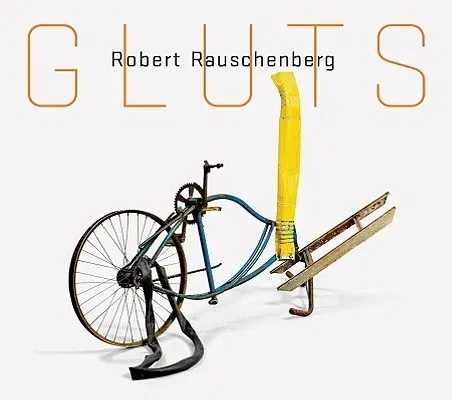In the mid-1980s, Robert Rauschenberg's creative attentions turned
toward the visual and plastic properties of junk metal when he began to
assemble found metal objects and screenprint his photographic images
onto aluminum, bronze, brass and copper. His first body of work in this
vein was Gluts, a series begun in 1986 and continued intermittently
until 1995, in which ornate metalwork seemingly derived from a bedpost
might attach to a slice of mesh wire, or twisted petals of yellow metal
might sprout from the remains of an eviscerated toaster. Asked to
comment on his novel use of the word "gluts," Rauschenberg said, "It's a
time of glut. Greed is rampant... I simply want to present people with
their ruins... I think of the Gluts as souvenirs without nostalgia."
Published to accompany the Peggy Guggenheim Collection's exhibition
Robert Rauschenberg: Gluts (the first show to focus on Rauschenberg's
sculpture since 1995), this fully illustrated catalogue features a
selection of approximately 40 sculptures drawn from the holdings of
institutions and private collections in the United States and abroad. It
includes a reassessment of Rauschenberg's work as a sculptor by author
and painter Mimi Thompson, an essay by Trisha Brown, an illustrated
exhibition history, a preface by Philip Rylands and introduction by
Susan Davidson that focuses on Rauschenberg's relationship to the
Guggenheim and the artist's engagement with Venice in particular.

